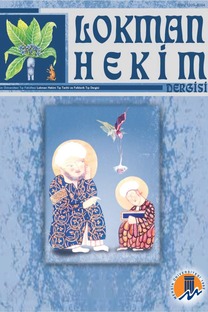ESKİŞEHİRLİ OSMAN İBN MUSA’NIN RİSÂLE-İ HACÂMAT (1860, 1883) ADLI KİTABI ÜZERİNE BİR İNCELEME
Hacamat, halk hekimliği, Osmanlı tıbbı, şişe çekme
A STUDY ON RISALE-I HACAMAT (TREATISE ON BLOODLETTING, 1860, 1883) BY OSMAN IBN MUSA OF ESKISEHIR
Bloodletting hijama, folk medicine, Ottoman medicine, cupping,
- ISSN: 1309-761X
- Yayın Aralığı: Yılda 3 Sayı
- Başlangıç: 2010
- Yayıncı: OYA ÖGENLER
GEÇMİŞTEN GÜNÜMÜZE BİTKİLERLE TEDAVİDE ECZACI-AKTAR MÜCADELESİ
Türk Farmakoloğ Birliği ve Süreli Yayını Farmakoloğ Üzerinde Bir İnceleme
BİTKİSEL DROGLARIN AKTAR-ECZÂHÂNE-ECZANE SERÜVENİ
Erciyes Üniversitesi Gevher Nesibe Tıp Tarihi Enstitüsü: Geçmişi, Bugünü ve Geleceği
Halil CANATAN, Halil TEKİNER, Çağrı Çağlar SİNMEZ
Osmanlı Tıp Kitaplarına Göre Sülükle Tedavi
Hekimlerimiz Tarafından 1962 Yılında Kayseri’de Reçete Edilen Majistral Formüllerden Örnekler
Eren DEMİRPOLAT, Ayşe Kübra KARABOĞA, Betül Yerer AYCAN, Mümtaz MAZİCİOĞLU
ESKİŞEHİRLİ OSMAN İBN MUSA’NIN RİSÂLE-İ HACÂMAT (1860, 1883) ADLI KİTABI ÜZERİNE BİR İNCELEME
ANADOLUHİSARI’NDA 89 YILLIK BİR ECZANENİN ÖYKÜSÜ
Gizem Gülsoy TOPLAN, Mert SANDALCI, Afife MAT
Edremit Eczacılık Tarihi Araştırması
Marmara Üniversitesi Eczacılık Fakültesi'nin Resmi Olmayan Tarihi
